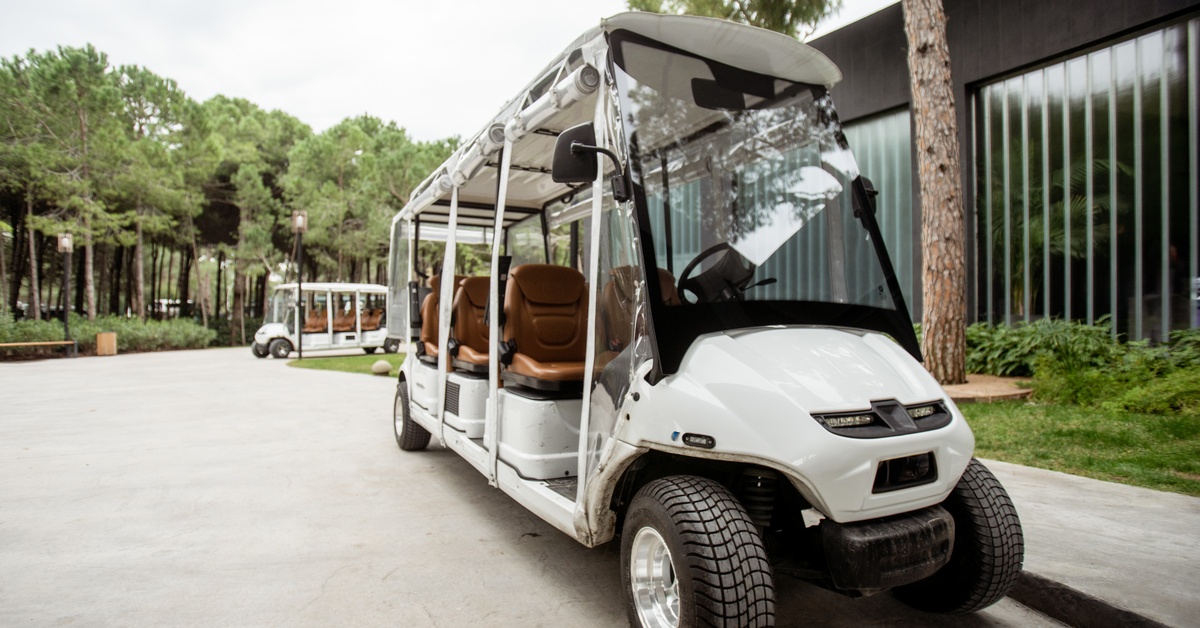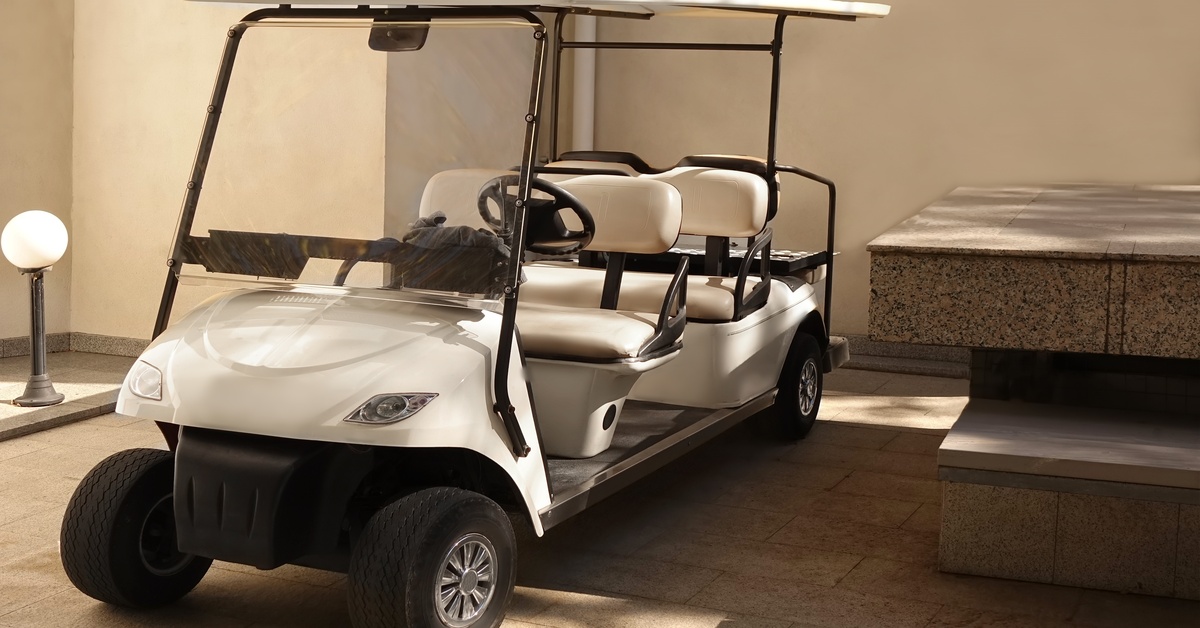
Golf carts have grown beyond their traditional use on golf courses to become essential in various outdoor settings, including campgrounds and RV parks. Whether you're managing a large campground or simply need a convenient way to move around an RV park, a golf cart can be the perfect solution.
These vehicles offer utility and comfort, making them indispensable for everyday use in expansive outdoor spaces. Choosing the right golf cart can seem challenging, given the numerous options, features, and specifications available. A thoughtful approach can help you select the cart that effectively meets your specific needs.
To simplify the decision-making process, it is important to consider all essential and basic factors. Whether you’re a first-time buyer or an experienced operator looking for upgrades, learning how to choose a golf cart for campgrounds or RV parks will make your experience more enjoyable.
A major decision involves choosing between gas-operated and electric golf carts. Gas-powered carts offer greater power and longer range, making them suitable for rugged or steep terrains, while electric variants are eco-friendly, quieter, and ideal for shorter or paved paths. Assess energy consumption and fuel costs over time to determine which option best fits your budget.
Electric carts come with rechargeable batteries that require charging stations, adding convenience for campgrounds with access to electricity. Gas carts offer consistent performance but require regular maintenance and refueling to ensure smooth operations. Weigh the pros and cons thoroughly to make a decision that aligns with your priorities.
When evaluating your needs and usage for a golf cart, start by identifying its primary purpose. Will you use it to transport people, equipment, or supplies? Determining whether you require a vehicle for rugged terrain, smoother paths, or a mix of both is essential to ensure it performs efficiently and remains durable over time.
It’s also important to assess the landscape and primary routes within the campground or RV park to confirm the cart can handle the terrain without difficulty. By thoroughly analyzing these factors, you can select the golf cart that best suits your specific requirements, ensuring practicality and long-term reliability.

The durability of a golf cart is critical when considering long-term performance in campground environments. Look for robust frames and high-quality components that withstand constant usage. Carts with all-weather protection will safeguard against rain, sun exposure, or varying temperatures.
Select a brand or model recognized for its reliable manufacturing standards. Some carts have specifications for off-road capabilities or heavy-duty performance for extreme conditions. Prioritize findings that balance durability with functional design.
Customizing your golf cart allows you to tailor it for your specific campground or RV park needs. Adjustable seating, lighting upgrades, and all-terrain tires are common features that enhance performance. Adding storage compartments or racks enhances the cart’s utility, increasing its versatility.
Some brands also offer aesthetic upgrades, such as personalized color schemes or logos. If fleet uniformity is important for branding, inquire about corporate customization. Explore various options before purchasing to maximize your satisfaction.
Before finalizing your purchase, schedule test drives with various golf cart models. A test drive allows you to evaluate comfort, handling, and suspension features firsthand. Closely observe how the cart performs across multiple terrains, including inclines, gravel, and pavement.
Visit reputable Oklahoma golf cart dealers, such as Central US Golf Carts, or other reliable distributors to explore fully assembled samples of popular models. A hands-on comparison highlights features that photos or descriptions cannot fully represent. Gathering on-site feedback ensures that you make an informed buying decision.

Seating capacity is important when selecting a golf cart for campgrounds or RV parks. Larger parks may benefit from multi-passenger carts, while smaller spaces may require compact models. Consider whether your passengers require space for seating exclusively or additional areas for storing their belongings.
Choose a cart with ergonomic seats and sufficient legroom if passenger comfort is a key priority. Multifunctional carts often include seating and cargo space for added convenience. Analyze guest or staff requirements to choose the configuration that fits your operation perfectly.
Campgrounds and RV parks often have rules about the types of vehicles allowed on the premises. Before purchasing, verify that your preferred golf cart complies with local regulations and safety requirements. Some areas may require street-legal components, such as headlights or turn signals.
Understand speed limits or age restrictions associated with golf cart operations in your community. Researching these details can prevent challenges post-purchase. Always work with dealers who are knowledgeable about compliance to streamline the process.
Assessing the long-term maintenance costs of a golf cart is essential to making an informed decision. This is what you must consider:
Golf carts are available at a variety of price points, depending on their features and brands. Determine a realistic budget based on features for your campgrounds or park. Calculate ownership costs, such as insurance or warranties, if applicable.
Many dealers offer financing programs that allow convenient installment payments. Discuss potential down payments and terms during consultations. Select a model that provides affordability and reliability to maximize your investment.
With an increasing emphasis on sustainability, energy-efficient golf carts are in higher demand. Eco-conscious parks may prefer electric models with minimal environmental impact. Solar-compatible carts are also gaining traction as practical investments.
Evaluate how energy-efficient options contribute to long-term reductions in operational costs. Energy-efficient models provide economic benefits without compromising performance. Explore cutting-edge options optimized for greener energy applications.
When selecting a golf cart for campgrounds and RV parks, find the balance between functionality, efficiency, and sustainability to meet the unique needs of your property. Assess the primary purposes the cart will serve, whether it's transportation, maintenance, or recreational use, as this will guide decisions on seating capacity, cargo space, and performance capabilities.
Consider energy-efficient options, such as electric or solar-compatible models, which reduce environmental impact while lowering operational and maintenance costs over time. By keeping these key aspects in mind, you can select a practical, eco-friendly, and cost-effective golf cart that offers reliability and aligns with the needs of your community.